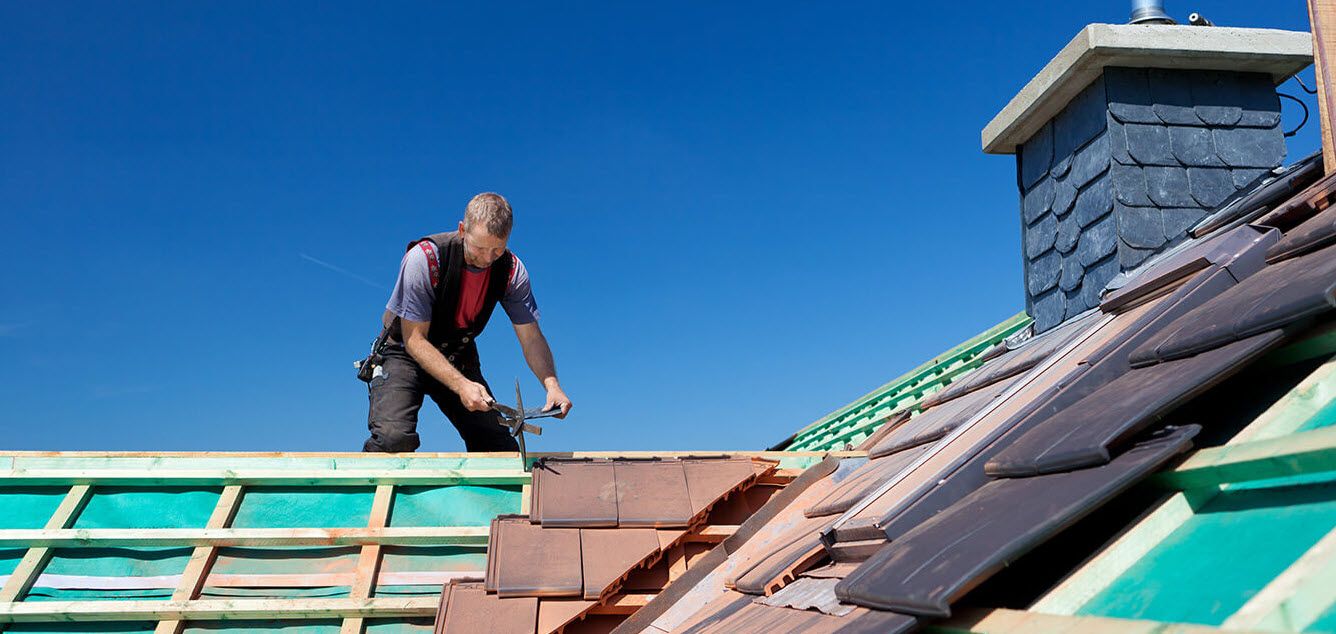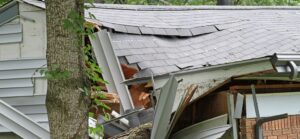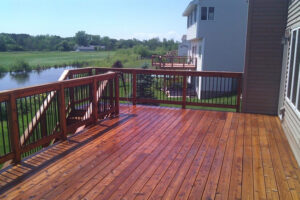
Have you ever glanced at a house with a nearly flat roof and wondered how it stands up to Mother Nature? The regulations and tactics of owning a property with a low-slope roof are specific. Local roofers in richmond hill ga would be ideal for revealing the secrets. These experts know the ins and outs of these roofs and can advise you on the pros and cons. Now that we have their attention let’s explore their knowledge and how it may help you, the homeowner.
Low-Slope Roofing With Local Roofers In Richmond Hill GA:
What exactly is a low-slope roof? Local roofers define it as one with a slope that is only slightly higher than flat. This design is not just about modern aesthetics; it is crucial in space maximization and cost efficiency. However, specific materials are needed to prevent water pooling and leaks. Typically, roofers use materials like PVC or TPO to create a watertight seal that stands the test of time. Understanding the makeup of these roofs is the first step in appreciating their complexity and functionality.
Maintenance Tips From The Pros:
Maintaining a low-slope roof doesn’t have to be daunting. They recommend biannual inspections and immediate repair of minor issues before they escalate. Clearing debris and ensuring the drainage system is unobstructed are top priorities to prevent water damage. Their mantra? A little care goes a long way.
Benefits Of Having A Low-Slope Roof:
Why opt for a low-slope roof? The answers are numerous. First, they are often more accessible than steep-slope roofs, making routine inspections and maintenance a breeze. Expert roofing services in Richmond Hill GA often point out the energy efficiency of these roofs, as they limit the air inside the home that needs heating or cooling, which can help keep your utility bills in check.
Common Challenges And Solutions:
Despite their advantages, low-slope roofs face challenges, particularly water leakage. However, the solution lies in proper installation and materials. Local roofers can employ seamless membranes and custom-fitted flashing techniques to combat these issues. Their main point is that you should choose a roofer who has worked on low-slope roofs before since they are more suited to deal with the particular problems that come with roofs.
Regular Maintenance Is Key:
Owning a home with a low-slope roof requires more attention than other types. Why, you ask? Imagine leaving leaves and twigs piling up over the fall; this can block drainage and create a perfect spot for water to pool. Roofers in your area will tell you that you should clean your roof twice a year: once in the spring to remove the dirt and debris left over from winter and again in the autumn to prepare it for the next round of precipitation. It’s not just about cleaning, though. Checking for cracks or blisters in the roofing material can save you from big headaches.
Future Trends In Low-Slope Roofing:
Looking ahead, the future of low-slope roofing is bright with innovation. New materials and technologies, such as solar reflective coatings and green roofing options, are emerging, which protect your home and contribute to environmental sustainability. Local roofers for Richmond Hill expert roofing services are excited about these advancements and how they can further enhance the functionality and eco-friendliness of low-slope roofs.
Choosing The Right Materials:
These materials are like the sunscreen of roofing—they offer protection and durability, keeping your home safe and dry. Moreover, they are light-colored, which means they reflect more sunlight and help keep your home cooler during those hot summer months. Plus, professionals can provide invaluable advice on any needed repairs or preventive measures, ensuring that your low-slope roof remains in top condition for years.
Maintenance Tips For Longevity:
Owning a home with a low-slope roof doesn’t just stop at installation—maintenance is critical to longevity. Simple actions like clearing debris and checking for pooling water can save you big bucks. For instance, when transitioning from winter to spring, you’ll want to ensure that melting snow isn’t finding its way under your roofing material.
The Importance Of Professional Inspections:
“Why can’t I just inspect the roof myself?” You might think it’s as simple as climbing up there and looking around, but low-slope roofs have their challenges and potential hidden issues. Licensed roofers near Richmond Hill GA know what to look for—signs of moisture, minor damages that could become big problems, and areas vulnerable to leaks. It’s like having a yearly check-up at the doctor—it helps catch issues early and extends the life of your roof.
The Right Materials Make A Difference:
Local roofers often suggest materials like PVC or TPO to homeowners, and here’s why: they’re robust, lightweight, and incredibly weather-resistant. These materials can handle the unique challenges of low-slope roofs, like poor drainage and regular water pooling. Moreover, this not only prolongs the life of your roof but can also help reduce your home’s cooling costs. So, consider the long-term benefits of your material choices when considering a roofing update. Investing could mean fewer repairs and a more relaxed home.
Conclusion:
Owning a home with a low-slope roof is a smart choice for many, offering unique benefits and innovative solutions to potential challenges. Whether through sustainable practices or optimizing maintenance routines, the secrets shared by these local roofers in richmond hill ga can help ensure your roof is as efficient and durable as possible. So next time you look at your roof, remember—it’s more than just a cover; it’s a carefully crafted, intelligent part of your home.






